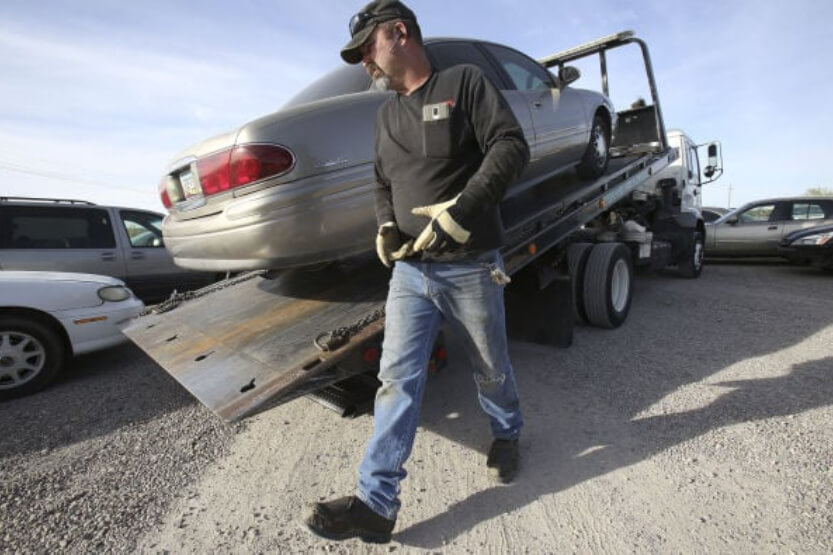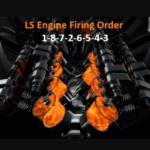State reffed is a term that refers to a process of inspecting a car to ensure that it meets all the safety and emission standards set by the state.
The inspection is usually conducted by a state-authorized technician, known as a referee, who checks all major components of the vehicle to ensure that it is roadworthy. If the vehicle fails the inspection, it is required to undergo repairs before it can be licensed and driven on public roads.
The state reffing process is often required when a vehicle has undergone significant modifications or has been involved in an accident.
The inspection ensures that the car is safe to drive and does not pose a threat to other road users or the environment.
In some states, the inspection is mandatory every two years, while in others, it is required only when a vehicle is being registered for the first time or has undergone significant modifications.
State reffing can be a daunting process for car owners, especially if they are not familiar with the requirements and regulations set by the state.
However, it is an essential step in ensuring that the vehicle is safe to drive and complies with all the necessary standards.
By understanding the state reffing process and working with a qualified technician, car owners can ensure that their vehicles are in compliance with all state regulations and can be driven safely on public roads.
What Is State Reffed?

“State reffed” is a fancy term in the car world for giving your ride a thorough check to make sure it’s up to snuff with the safety and emission rules laid down by the state.
So, you’ve got these state-approved gearheads, or referees as they call ’em, taking a close look at all the nuts and bolts in your car. They’re on a mission to ensure your car plays by the safety and emission rulebook, keeping things green and safe for everyone on the road.
This whole state reffing gig is usually for cars that have gone through some serious changes, been in a fender bender, or just need a regular checkup as per state rules.
If your car doesn’t pass the coolness test during state reffing, it might need a bit of TLC in the form of repairs or tweaks before it gets the green light to cruise on public roads.
Now, how often your car goes through this state reffing drill can depend on where you live. Some places want to check your wheels regularly, like clockwork, while others might only hassle you during the car’s first registration or if you’ve given your ride a major makeover.
Long story short, state reffing is like the safety patrol for cars, making sure they follow the state’s strict rules for roadworthy and eco-friendly rides.
Registration and Compliance
Registering with the State
When purchasing a new vehicle, the owner must register the car with the state’s Department of Motor Vehicles (DMV) to receive a license plate and legally operate the vehicle on public roads.
To register a car, the owner must provide proof of ownership, such as a bill of sale or title, and pay the registration fee. The DMV will issue a registration card and license plate, which must be displayed on the vehicle.
In addition to registering the vehicle, the owner must comply with state and local regulations, including safety and emissions regulations. Failure to comply with these regulations can result in fines, penalties, and even the revocation of the vehicle’s registration.
IRS and Tax Considerations
When registering a vehicle, the owner must also consider the tax implications of owning a car.
The Internal Revenue Service (IRS) allows owners to deduct certain expenses related to their vehicle, such as registration fees, on their tax return. However, the owner must keep detailed records of these expenses to claim the deduction.
Safety and Emissions Regulations
State and local governments impose safety and emissions regulations to ensure that vehicles on the road are safe and do not harm the environment.
In California, for example, vehicles must undergo a smog check every two years to ensure that they meet emissions standards. If a vehicle fails the smog check, the owner must have it repaired and retested before it can be registered with the DMV.
In addition to emissions standards, vehicles must also meet safety regulations, such as having functioning brakes, airbags, and seat belts.
To ensure compliance with these regulations, some states require vehicles to be inspected by a state referee, who will certify that the vehicle meets all safety and emissions standards before it can be registered with the DMV.
Overall, registering a vehicle and complying with state and local regulations can be a complex process. It is important for owners to stay informed of the latest regulations and requirements to avoid fines and penalties.
Legal and Financial Responsibilities

Understanding Ref Tickets
When a car is state reffed, it means that it has failed to pass the state’s smog and emissions tests. The California Air Resources Board (CARB) is responsible for enforcing emissions standards and ensuring that all vehicles on the road meet those standards.
If a vehicle fails to meet the standards, the owner will receive a ref ticket, which is a notice that the vehicle must be taken to a state-authorized referee station for inspection and repairs.
The ref ticket will state the reason for the failure and the steps that need to be taken to correct the issue.
The ticket will also include a base fine, which is the minimum amount that must be paid to the state for the violation. It is important to note that the base fine does not include any additional fees or penalties that may be assessed.
Handling Fines and Fees
In addition to the base fine, there may be other fees and penalties associated with a state reffed vehicle. These fees can include the cost of repairs, which must be completed before the vehicle can be retested and registered.
There may also be late fees, interest charges, and other penalties for failing to comply with the state’s emissions standards.
It is important for vehicle owners to understand their legal and financial responsibilities when dealing with a state reffed vehicle. Failure to comply with the state’s emissions standards can result in fines, legal action, and even criminal charges in some cases.
If a vehicle is involved in an accident or a crime, the state reffing process may become even more complicated. Vehicle owners should consult with a qualified attorney to understand their legal options and responsibilities in these situations.
In summary, owning a state reffed vehicle comes with legal and financial responsibilities that must be taken seriously. Vehicle owners should understand the ref ticket process, handle fines and fees promptly, and seek legal advice when necessary to ensure compliance with state laws and regulations.
Insurance and Identification
When a car is state reffed, it means that the vehicle has undergone a rigorous safety and emissions inspection and has been deemed safe and compliant with all state regulations. As such, it is important for drivers to carry all necessary paperwork and identification to avoid any legal complications.
Carrying Proof of Insurance
One of the most important documents that drivers must carry is proof of insurance. This document serves as evidence that the vehicle is insured and can cover any damages or injuries in case of an accident.
The proof of insurance must be up-to-date and valid, and the driver must be able to present it upon request by law enforcement officers or state referees.
Valid Identification and Paperwork
In addition to proof of insurance, drivers must also carry valid identification and paperwork. This includes a valid driver’s license, vehicle registration, and any other necessary documents required by the state.
These documents must be up-to-date and valid, and the driver must be able to present them upon request.
It is important to note that failure to provide proof of insurance, valid identification, or necessary paperwork can result in legal consequences, including fines and even suspension of driving privileges. As such, drivers should ensure that they have all necessary documents with them at all times.
In summary, carrying proof of insurance, valid identification, and necessary paperwork is crucial for drivers of state reffed vehicles. By doing so, they can avoid any legal complications and ensure that they are in compliance with state regulations.
Consequences of Non-Compliance

When a vehicle is referred to a state referee, it is usually due to a failed inspection, impounded vehicle, accident, crime, or speeding violation. The consequences of non-compliance can be severe and may include vehicle impoundment and revocation of certification.
Vehicle Impoundment
If a vehicle is found to be non-compliant, it may be impounded by the state. The owner of the vehicle will be responsible for all impound fees and may also be subject to additional fines or penalties.
In some cases, the vehicle may be held until the necessary repairs are made and the vehicle is brought into compliance.
Revocation of Certification
If a referee determines that a vehicle is not in compliance with state regulations, they may revoke the vehicle’s certification. This means that the vehicle will not be allowed to be driven on public roads until it is brought into compliance.
The owner of the vehicle will be responsible for all fees associated with the revocation of certification, including any necessary inspections and repairs.
In addition to these consequences, non-compliance may also result in assessments of additional fees or penalties. It is important for vehicle owners to ensure that their vehicles are in compliance with all state regulations to avoid these consequences.
To Sum Up
State Referee is a process required by the California DMV to ensure that a vehicle meets the state’s emissions and safety standards.
If a car fails to meet these standards, it will be referred to the State Referee for further inspection. The inspection is quite thorough and can take several hours to complete.
During the inspection, the State Referee will check the vehicle’s emissions system, brakes, tires, suspension, lighting, and other components to ensure they meet the required standards.
If the vehicle fails the inspection, the owner will be given a list of repairs that need to be made before the car can be registered.
It is important to note that State Referee is not a punishment or a way for the DMV to make money. It is simply a way to ensure that all vehicles on California roads are safe and environmentally friendly.
If you receive a State Referee notice, it is important to take it seriously and make the necessary repairs as soon as possible. Failure to comply with State Referee requirements can result in fines and even impoundment of the vehicle.
In summary, State Referee is a necessary process to ensure the safety and environmental friendliness of vehicles on California roads. It is important for vehicle owners to comply with State Referee requirements and make the necessary repairs to their vehicles as soon as possible.

![Most Reliable Sports Cars in the World [Top 10] most reliable sports cars in the world](https://roadsumo.com/wp-content/uploads/2022/10/most-reliable-sports-cars-in-the-world-150x150.jpg)







![Read more about the article How to Find Your Driver’s License Number [5 Ways]](https://roadsumo.com/wp-content/uploads/2022/03/how-to-find-my-drivers-license-number-300x200.jpg)